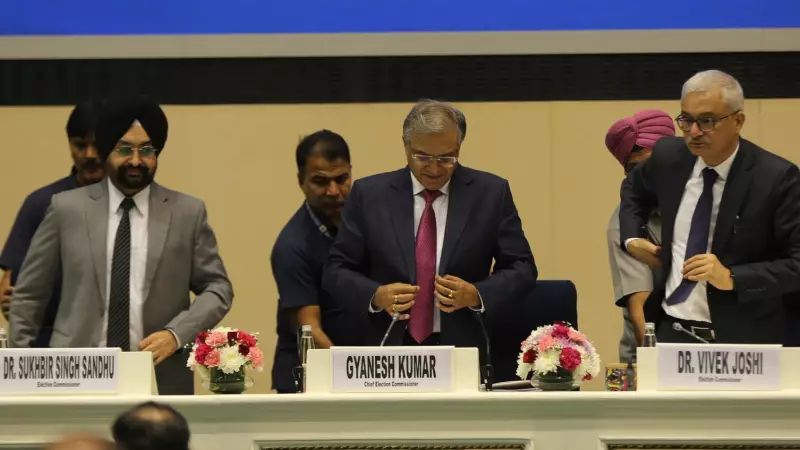
Political temperatures are soaring in two key Indian states as West Bengal's ruling Trinamool Congress and Tamil Nadu's opposition DMK engage in a fierce battle against what they term "undemocratic practices" during the ongoing elections.
West Bengal: TMC's Sharp Attack on Election Commission
The Trinamool Congress has launched a scathing attack on the Election Commission of India, accusing the constitutional body of showing blatant bias in favor of the opposition BJP. Party leaders have pointed to what they call "selective action" and "uneven application" of election rules that allegedly disadvantage the ruling party in the state.
"There appears to be a clear pattern of harassment against our party workers while violations by the opposition are being conveniently overlooked," a senior TMC leader stated during a press conference in Kolkata.
Tamil Nadu: DMK Sounds Alarm Bells
Meanwhile, in Tamil Nadu, the DMK has taken the extraordinary step of calling an all-party meeting to address what it describes as "systematic voter intimidation" and "attempts to disrupt the democratic process." The opposition party has expressed serious concerns about the conduct of certain elements during the polling process.
DMK president MK Stalin has personally reached out to various political parties across the spectrum, seeking a united front to protect what he calls "the sanctity of the electoral process." The emergency meeting aims to formulate a coordinated response to the alleged malpractices.
Growing Political Polarization
Political analysts observe that these developments highlight the intense polarization and high stakes involved in the current election cycle. Both states have witnessed increasingly bitter campaigning, with accusations flying thick and fast between rival political camps.
The timing of these protests is particularly significant, coming at a crucial juncture in the multi-phase election process. With several constituencies yet to vote, the allegations could potentially influence voter perception and turnout in the remaining phases.
Election Commission Under Scanner
The Election Commission finds itself in the eye of the storm as competing political parties level serious charges against its functioning. While the commission has maintained that it remains impartial and is following established protocols, the escalating accusations threaten to undermine public confidence in the electoral process.
Political observers note that such confrontations between state parties and constitutional bodies during elections are becoming increasingly common, reflecting the heightened political tensions in the country.
As the election drama unfolds, all eyes remain on how the Election Commission will respond to these allegations and whether its actions will satisfy the complaining parties or further escalate the political confrontation.





